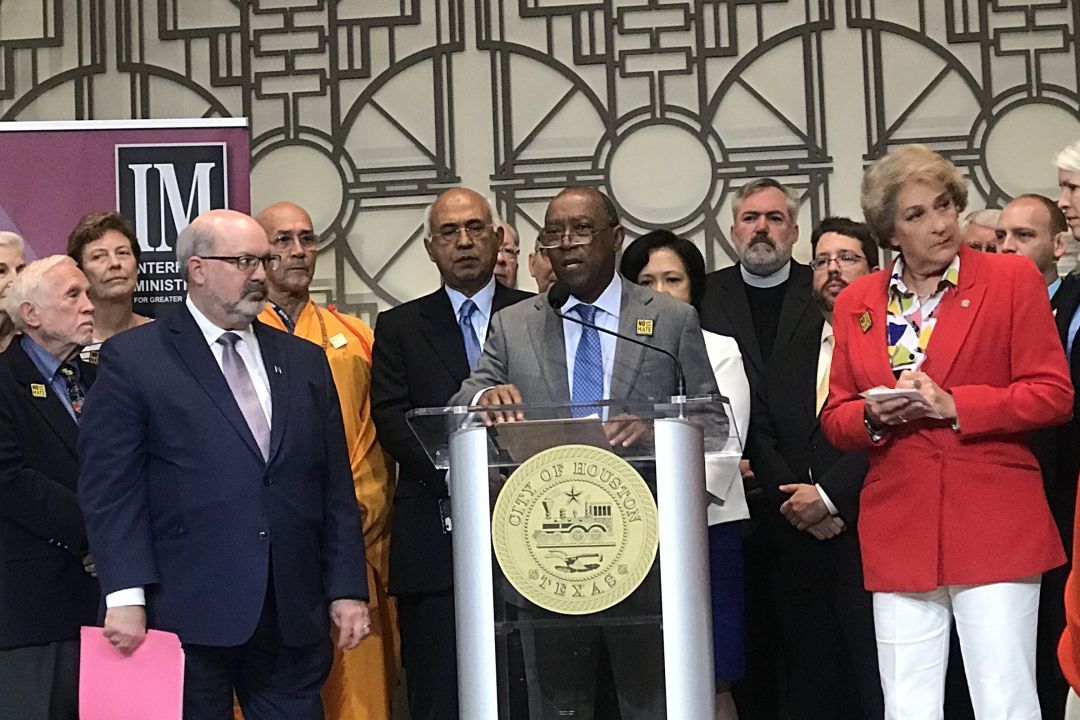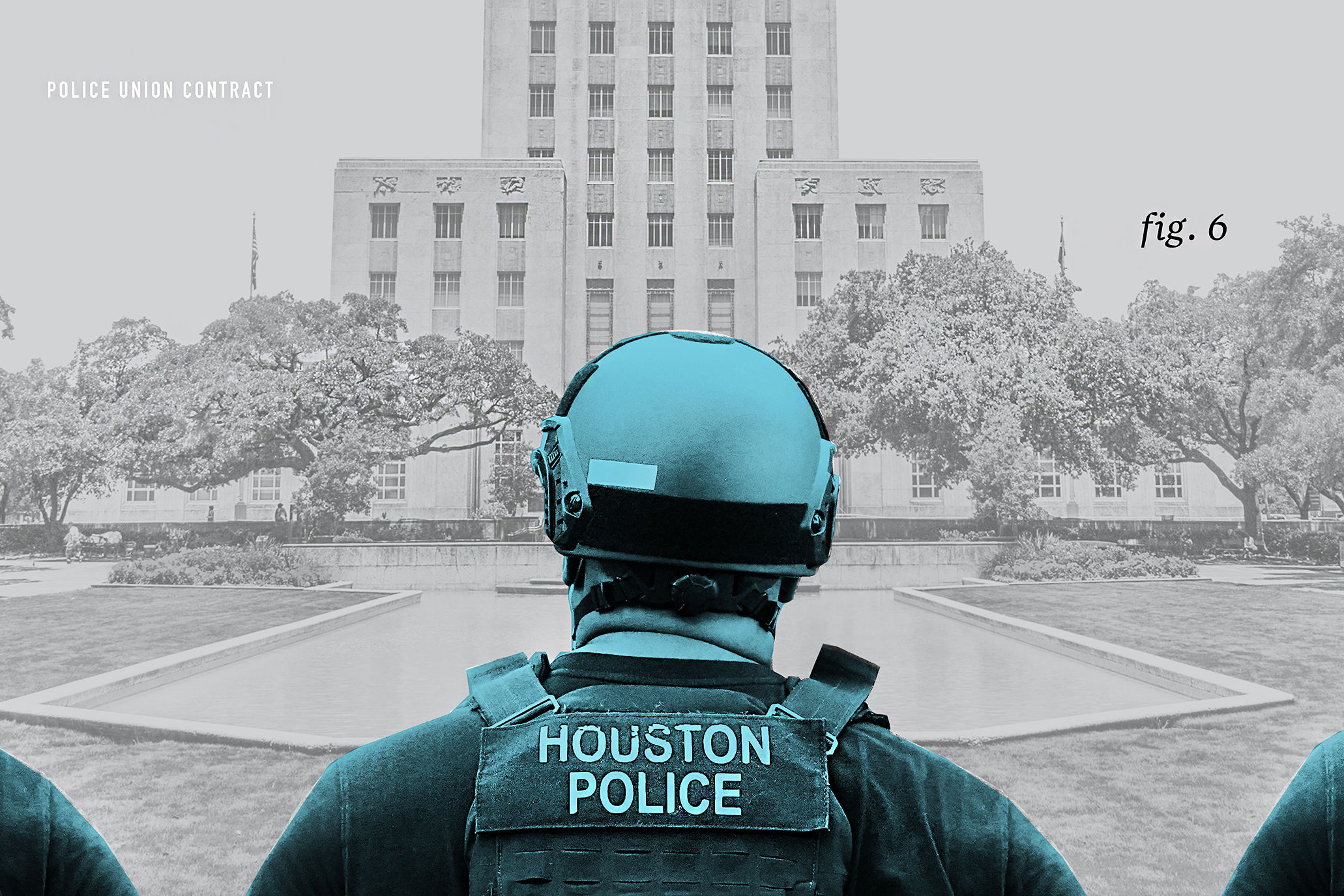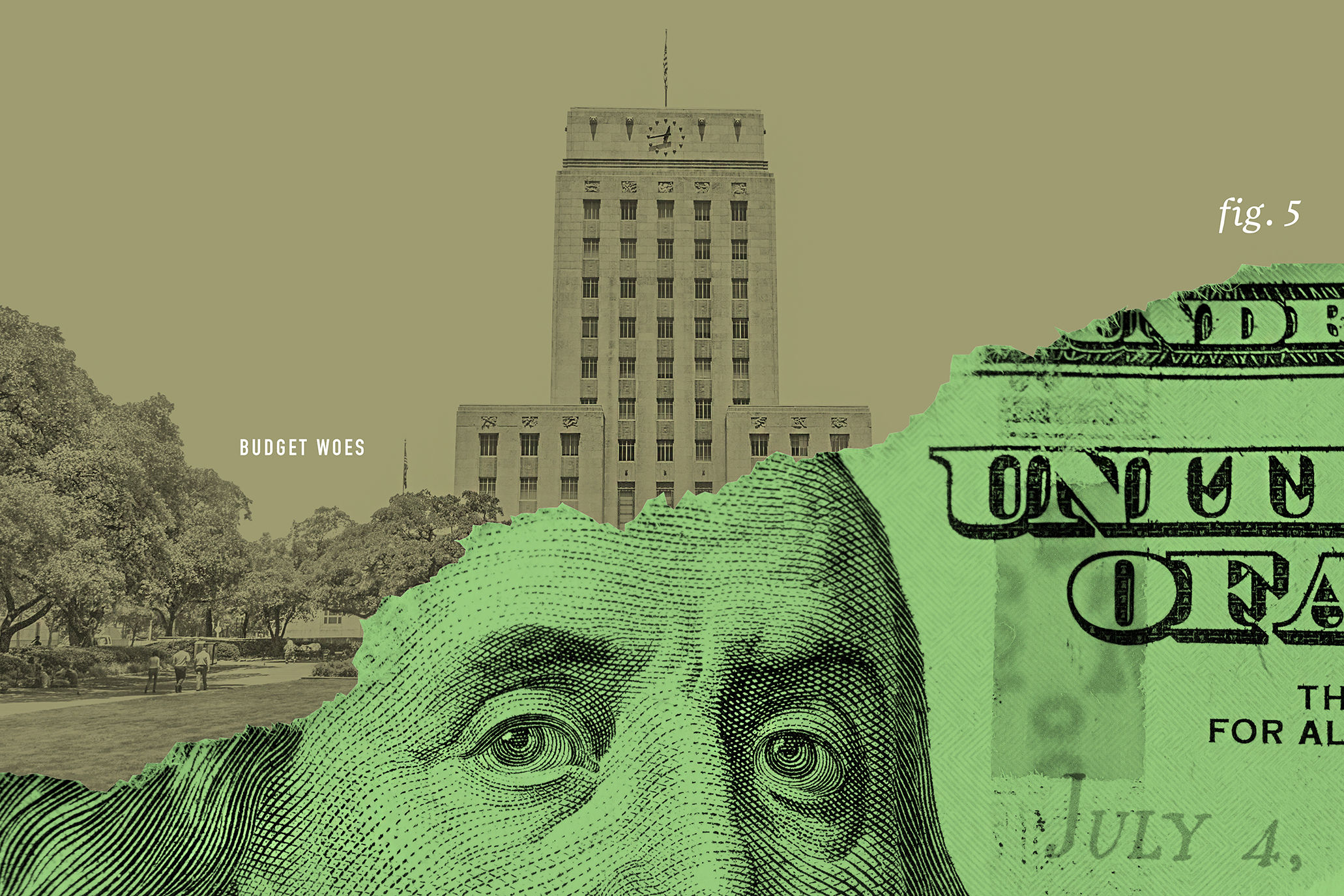Houston Leaders Declare a 'Clear Red Line Against Hate or Violence'

Mayor Sylvester Turner responds to the violence in Charlottesville, Virginia, alongside faith leaders and the Anti-Defamation League.
Image: Morgan Kinney
MAYOR SYLVESTER TURNER never misses a chance to brag about how Houston is the most diverse city in the country, but Wednesday at City Hall, it was obvious before he walked into the room. Priests donned their collars and rabbis their yarmulkes, and folks of most every age, race and religion stood behind an empty lectern, including a Buddhist monk who coordinated his saffron robes with an exceptionally clean pair of tennis shoes.
This group of leaders from the Interfaith Ministries for Greater Houston and the Anti-Defamation League were gathered to respond to the recent violence in Charlottesville, Virginia, that left one person dead and more than a dozen injured amid a series of violent white supremacist demonstrations. When Turner eventually joined the group at the microphone, he declared a "clear red line against hate or violence and those who perpetrate it."
Turner swiftly condemned the hateful acts, cautioning that the public must work diligently to “not allow the national wind to flow into our city.” He added a call to action: “You cannot be complicit through your silence, and you cannot be complicit with your nuance.”
Near the entrance for the event were two books where those in attendance could leave a note. Mayor Pro-Tem Ellen Cohen explained that one book was for Natalie Romero, a Bellaire High School graduate seriously injured in Saturday’s car attack in Charlottesville. The other would go to the family of Heather Heyer, the woman killed "by a neo-Nazi terrorist" when struck by the same vehicle.
Leaders from the Jewish, Muslim and Christian communities joined the condemnation and offered their solidarity in preventing a similar incident from spreading to Houston. Several of these leaders criticized President Donald Trump’s evolving comments on Charlottesville, which at first did not explicitly condemn the KKK, neo-Nazis and white supremacists, instead assigning blame on "many sides." Dayan Gross, southwestern director for the Anti-Defamation League, was particularly pointed in his rebuke of the president: "Clearly, we don't have the leadership to fight hate at the top, so now it's up to us."
Turner revealed he and Charlottesville Mayor Michael Signer spoke several weeks ago about how to best handle the upcoming demonstration in Virginia, which was a planned event. He believes Houston, after regularly hosting large events (and especially after this year's Super Bowl), is well-prepared should similar protests crop up locally. Houston Police Chief Art Acevedo added that communicating expectations early and often with organizers is an important part of the lead-up to large demonstrations. "We can tolerate First Amendment activity, we cannot tolerate criminal activity," Acevedo said.
Turner also elaborated on Tuesday's announcement that the city will begin a review of the city's Confederate monuments. The review will end with recommendations on how to move forward, and participants will include historians from Rice University, UH and Texas Southern to advise Turner on a prudent course of action. The mayor repeatedly used "thoughtful" and "deliberative" to characterize the review process and emphasized a precarious balance he'd like to achieve; how should the city remove "dark and ugly" aspects of history from the public eye without erasing their lessons from memory?
"You can't just all of the sudden go and say we gotta tear down everything," Turner said in response to a question about Baltimore's dead-of-night removal of four Confederate statues. "That's not the answer."




